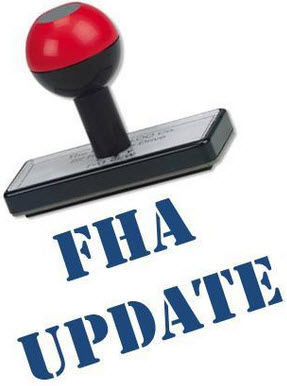
The down payment required to purchase a home can be substantial and many prospective home owners don’t have enough savings to pay it out of their own pocket. Below, we will take a look at a few possible solutions when looking for a way to borrow money for a down payment on a home.
Down payment loan from the mortgage loan provider
A traditional mortgage home loan will typically only cover a part of the purchase price, e.g. 85% or 90%. This means that you must come up with the rest of the money by other means. Typically, this means finding another source for the down payment.
In some cases, it is possible to borrow the down payment from the mortgage loan provider, but as a separate loan with other terms and conditions than the main mortgage loan. With many lenders, this extra loan will be an unsecured loan, which means that the borrower (you) provides no collater for the loan. Since such a loan is more risky for the lender, you can expect the loan to come with a comparatively high interest rate and short repayment period.
Refinancing
If your home increases in value at some point after the purchase, but before your down payment loan has been repaid in full, you might be able to negotiate a deal with the bank where you increase your mortgage loan and use that money to immediately pay off the remaining part of the down payment loan. Doing this can be beneficial for your household economy, since unsecured down payment loans tend to have a significantly higher interest rate than mortgage loans.
Down payment loan from another lender than the mortgage loan provider
When you are in the process of buying a home, it can be tempting to just accept the offer of a down payment loan from the mortgage loan provider, but our advice is that you shop around instead and take a look at several different solutions before you make any decision. In some cases, borrowing the down payment money from another lender than the mortgage loan provider is actually a better deal.
There are many lenders, including banks and credit unions, that offer unsecured personal loans. Depending on the size of your down payment, such a loan can be large enough to cover the down payment.
FHA
 In the United States, the Federal Housing Administration (FHA) have certain programs available that can aid prospective home owners with low incomes. Usually, you have to be a prospective first-time home owner with a low enough income to qualify.
In the United States, the Federal Housing Administration (FHA) have certain programs available that can aid prospective home owners with low incomes. Usually, you have to be a prospective first-time home owner with a low enough income to qualify.
The FHA doesn’t issue loans themselves, but they do insure loans issued by FHA-approved lenders, provided that the borrower fulfils certain requirements.
With FHA home loan insurance, buyers can put down as little as 3.5% in down payment out of their own pocket, and it is also possible to borrow up to 6% towards closing costs.
You can find more information about FHA loan insurance and FHA-approved lenders at the U.S. Department of Housing and Urban Development.
For veterans
A VA mortgage loan is a loan guaranteed by the United States Department of Veteran Affairs (VA). The aim of this program is to aid qualifying U.S. military veterans to obtain a home mortgage loan in situations where obtaining private financing would be difficult or prohibitively costly.
With a VA mortgage loan, you can receive up to 103.3 % financing which means that you don’t have to come up with the down payment money separately. The 103.3% is calculated based on purchase price or reasonable value, which ever is less. There is also a cap for how large the total loan can be.
Please note that in some cases, the surviving spouse of a diseased qualifying veteran can be eligible for a VA mortgage loan.
Borrowing money directly from the VA
In most parts of the United States, the VA doesn’t lend money – they only help by insuring the mortgage loan, making the borrower more appealing for private banks and credit unions. There are exceptions to this rule; in certain parts of the nation VA is allowed to make direct loans to qualifying borrowers.
Down payment grants
A heterogeneous selection of down payment grants aimed to help prospective home owners are available in the United States. Some, such as the American Dream Down Payment Initiative, are funded by the federal government. Others are funded by states or local authorities, and therefore only available locally. It is therefore a good idea to be specific in your search for down payment grants – there might be grants available for buyers in your local area.
Please note that some of these programs are available not just for low-income households but for moderate-income households as well.
